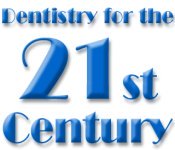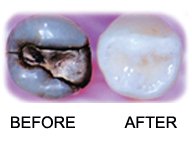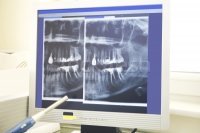|
Biological Dentistry
Biological Dentistry is sometimes called Holistic or Health-Centered Dentistry, but it is more than that.
However, in the late 20th century, a resurgence of interest and research into the subject of dental health relating to whole-body health began to raise the awareness of dentists and patients alike. Dr. Richard T. Hansen, founder and director of our Center, recognized early in his practice that there was a direct connection between oral and overall health. He began to study thousands of pages of research that showed links between oral infections and heart disease, kidney and liver problems, low birth weight babies, strokes, diabetes and other maladies. These truths are generally accepted now among the medical community, and are slowly gaining acceptance in the dental community as well. He also learned of the hazards of using mercury and mixed-metal restorations, and made it a point not to use them in his office. He began to incorporate biologically safe, "biocompatible" materials and techniques, which culminated in his research, development and use of dental lasers. He was one of the first dentists in this country to recognize and use lasers as a valuable tool for biological dentistry, as they are less invasive and injurious than probes, scalpels and drills. In the mid-1990's, Dr. Hansen was one of only five dentists in the United States recruited by the FDA to use and review dental lasers for FDA approval, because of his expertise and knowledge of the subject. The reduction or elimination of a patient's stress during treatment is another reason dental lasers are so effective in dental procedures, and they can be used for anything from cleaning and diagnosis to complicated oral surgeries with great effectiveness. Lasers are a valuable component in our practice of biological dentistry, but it involves much more than that. Biological dentistry is also concerned with a patient's diet, nutrition and lifestyle as it affects their oral health and overall health. It may recognize, through oral symptoms, problems developing in other parts of the body and recommend that the patient see a physician, chiropractor or other health practitioner. This brand of dentistry truly looks at the entire health picture of each patient. As one biological dentist put it, he started out his career, many years ago, "treating teeth that had people attached," but today he is treating people who are very aware that "their oral health is intimately connected to their overall health and well being." This is the philosophy, in a nutshell, that encapsulates what we do at our Center, and what we are dedicated to doing for each patient. |


A better, more comfortable and healthier way to fill teeth!

CLICK HERE to find out about our Laser Nerve Treatment, a way to avoid root canals!
 Over a century ago, many physicians knew about the direct connection between dental and overall health. Many MD's were also dentists, and the two professions were closely related. (Dr. Greenville V. Black, who practiced in the late-1800's to the early 1900's and was considered the "father of modern dentistry," was also a licensed physician.) However, as time progressed and dentistry concentrated on the mechanical aspects of treatment rather than the health aspects, the two professions grew apart. Organizations such as the ADA encouraged this further, as their main concern was promoting the amalgam manufacturers and the pharmaceutical companies who represented them.
Over a century ago, many physicians knew about the direct connection between dental and overall health. Many MD's were also dentists, and the two professions were closely related. (Dr. Greenville V. Black, who practiced in the late-1800's to the early 1900's and was considered the "father of modern dentistry," was also a licensed physician.) However, as time progressed and dentistry concentrated on the mechanical aspects of treatment rather than the health aspects, the two professions grew apart. Organizations such as the ADA encouraged this further, as their main concern was promoting the amalgam manufacturers and the pharmaceutical companies who represented them.